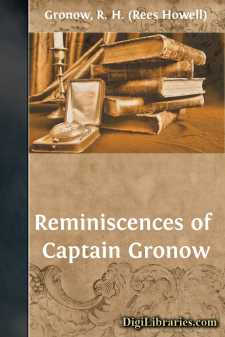History
- Africa 30
- Americas (North Central South West Indies) 50
- Ancient 68
- Asia 58
- Australia & New Zealand 8
- Canada 41
- Caribbean & West Indies 1
- Civilization 20
- Eastern Europe 12
- Europe 310
- Expeditions & Discoveries 60
- General 77
- Historical Geography 1
- Jewish 9
- Latin America 3
- Medieval 8
- Middle East 13
- Military 248
- Revolutionary 8
- Study & Teaching 5
- United States 353
- Western Europe
- World 13
Western Europe Books
Sort by:
SECTION XXXV.—VICTOR AMADEUS, KING OF SICILY. It is said that the King of Sicily is always in ill humour, and that he is always quarrelling with his mistresses. He and Madame de Verrue have quarrelled, they say, for whole days together. I wonder how the good Queen can love him with such constancy; but she is a most virtuous person and patience itself. Since the King had no mistresses he lives upon...
more...
SECTION VIII.—PHILIPPE I., DUC D'ORLEANS. Cardinal Mazarin perceiving that the King had less readiness than his brother, was apprehensive lest the latter should become too learned; he therefore enjoined the preceptor to let him play, and not to suffer him to apply to his studies. "What can you be thinking of, M. la Mothe le Vayer," said the Cardinal; "would you try to make the...
more...
The Duchesse d'Orleans, commonly though incorrectly styled the Princess of Bavaria, was known to have maintained a very extensive correspondence with her relations and friends in different parts of Europe. Nearly eight hundred of her letters, written to the Princess Wilhelmina Charlotte of Wales and the Duke Antoine-Ulric of Brunswick, were found amongst the papers left by the Duchess Elizabeth of...
more...
PREFACE. The Duchesse d'Orleans, commonly though incorrectly styled the Princess of Bavaria, was known to have maintained a very extensive correspondence with her relations and friends in different parts of Europe. Nearly eight hundred of her letters, written to the Princess Wilhelmina Charlotte of Wales and the Duke Antoine-Ulric of Brunswick, were found amongst the papers left by the Duchess...
more...
It has been my lot to have lived through the greater part of one of the most eventful centuries of England's history, and I have been thrown amongst most of the remarkable men of my day; whether soldiers, statesman, men of letters, theatrical people, or those whose birth and fortune—rather, perhaps, than their virtues or talents—have caused them to be conspicuous in society at home or abroad....
more...
CHAPTER I INTRODUCTION This book is intended not to raise fears but to record facts. We wish to describe with pen and pencil those features of England which are gradually disappearing, and to preserve the memory of them. It may be said that we have begun our quest too late; that so much has already vanished that it is hardly worth while to record what is left. Although much has gone, there is still,...
more...
CHAPTER I THE NAVAL CAMPAIGN ON LAKE CHAMPLAIN1775-1776 Preponderant effect of Control of the Water upon the Struggle for American Independence Deducible then from Reason and from Experience Consequent Necessity to the Americans of a Counterpoise to British Navy This obtained through Burgoyne's Surrender The Surrender of Burgoyne traceable directly to the Naval Campaigns on Lake Champlain, 1775,...
more...
by:
Rudyard Kipling
THE AUXILIARIES The Navy is very old and very wise. Much of her wisdom is on record and available for reference; but more of it works in the unconscious blood of those who serve her. She has a thousand years of experience, and can find precedent or parallel for any situation that the force of the weather or the malice of the King's enemies may bring about. The main principles of sea-warfare hold...
more...
Chapter I French women of the sixteenth, seventeenth, and eighteenth centuries, when studied according to the distinctive phases of their influence, are best divided into three classes: those queens who, as wives, represented virtue, education, and family life; the mistresses, who were instigators of political intrigue, immorality, and vice; and the authoresses and other educated women, who constituted...
more...
by:
Arthur H. Savory
CHAPTER I. ALDINGTON VILLAGE—THE MANOR HOUSE—THE FARM. "There's a divinity that shapes our ends." —Hamlet. "Deep-meadow'd, happy, fair with orchard...
more...











